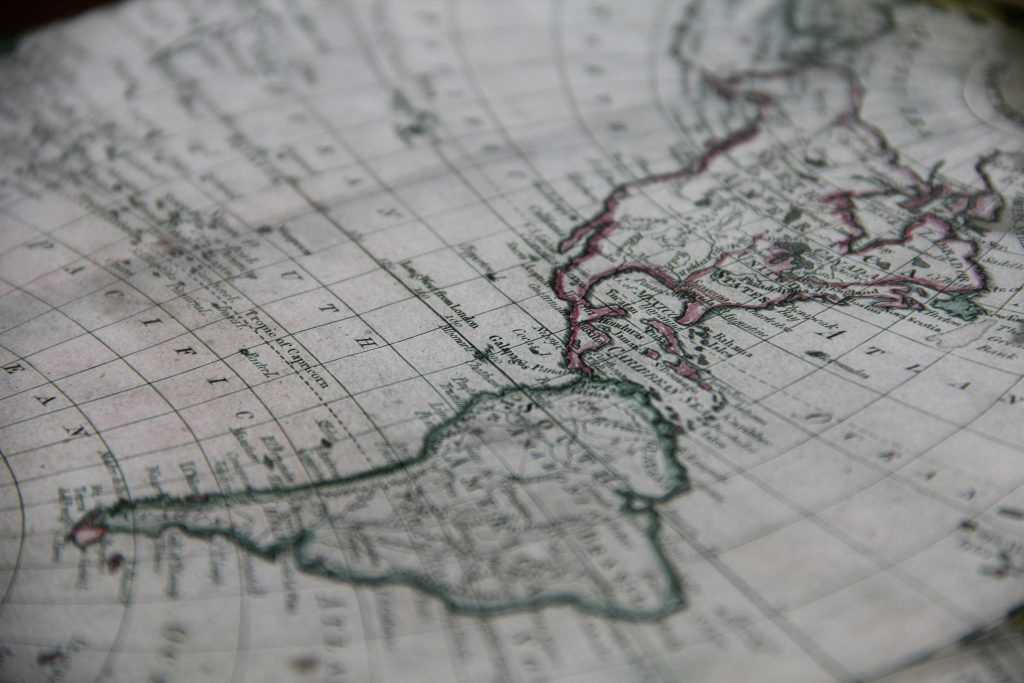Europe–South America: A Missed Opportunity That Must Be Urgently Recovered

The EU–CELAC summit of November 9 in Colombia was a failure. Yet the European Union must urgently strengthen its ties with Latin America, both geopolitically and geoeconomically. That is why the EU–Mercosur agreement, despite exaggerated fears, must be ratified without delay.
On Sunday, November 9, a summit was held between CELAC—the organization that brings together all Latin American and Caribbean states—and the European Union, in Santa Marta, northern Colombia, at the invitation of President Gustavo Petro. But of the 60 member countries of these two organizations, only 13 heads of state and government made the trip, unlike the previous summit of the same kind, held in 2023 in Argentina1. On the European side, most of the Union’s heavyweights were notably absent: neither Ursula von der Leyen, nor Friedrich Merz, nor Giorgia Meloni, nor Emmanuel Macron considered it worth attending.
Europe Has Given in to Donald Trump’s Pressure
Some of them had indeed been present just a few days earlier in Belém for COP30, but this absenteeism was above all the result of intense pressure exerted by Donald Trump on both regional states and Europeans. He clashed sharply with Colombia’s left-wing president, personally sanctioned him, and considered the meeting an intolerable intrusion into his sphere of influence. Bowing to this pressure, many Europeans chose to stay away so as not to offend an American president who openly displays his imperial ambitions toward South America, particularly under the pretext of combating drug trafficking. As a result, the momentum toward closer EU–Latin America relations—initiated during the previous term under the leadership of EU High Representative Josep Borrell—has once again been broken.
Yet, if the European Union does not want to be crushed by the tightening vise between the autocrat Donald Trump on one side and the imperialist Vladimir Putin—aligned with Xi Jinping’s China—on the other, both of whom wish for the destruction of the EU and the end of democracy in Europe, it must resolutely turn toward the Global South to find allies, safeguard multilateralism and international law, and prevent the law of the jungle from ruling the world once again.
Latin America: A Geopolitical and Geoeconomic Priority for Europe
From this standpoint, Latin America and its 668 million inhabitants must unquestionably be a priority for the EU. Though geographically more distant from Europe than Africa or the Middle East, it is closer culturally, linguistically, and in lifestyle and standard of living. It is also our closest region in terms of democracy and support for multilateralism. Moreover, Latin America’s relations with Europe are far less burdened by the lingering tensions of colonialism, which belong to a much older history. Finally, in the current context, Latin America is also seeking allies to resist the imperial ambitions of Trump’s United States. If the European Union fails to strengthen its ties with the region swiftly, it will increasingly turn toward Beijing, as it has already begun to do.
Beyond this geopolitical dimension, Europe must urgently strengthen its “strategic autonomy” on the economic front. As Mario Draghi noted in his report on the future of Europe’s competitiveness, this naturally requires a major increase in investment within the European Union itself. But unless it wishes to risk massive and widespread impoverishment, strategic autonomy cannot mean autarky. It necessarily involves developing economic relations with other parts of the world beyond China and the United States—both as markets for Europe’s high–value-added exports and as sources of more affordable inputs to replace Chinese supply. Latin America could become a key partner for Europe on both fronts.
The region possesses numerous raw materials essential for the green transition—lithium, copper, and rare earth elements that Europe lacks. This must not, of course, lead to a return to an extractivist model in which Europe merely imports raw materials from Latin America. Instead, a privileged partnership must be established, with European capital and expertise helping to build local industrial chains that develop these resources while creating jobs and industry in the region. This is all the more crucial since Latin America, already at the forefront of renewable energy deployment, will itself face growing energy needs in the future.
The EU–Mercosur Agreement Has Changed Meaning
Despite the failure of the CELAC–EU summit on November 9, a new opportunity will soon arise to strengthen economic and political ties between Europe and Latin America with the ratification of the EU–Mercosur agreement. However, the deal faces strong opposition in France, mainly due to fears of destabilizing agricultural markets.
The Union already has trade agreements with all other Latin American countries. An expanded agreement with Chile has been in force since February 1, 2025, and a new one with Mexico is expected to enter into effect in February 2026. But what was still missing was an agreement with the biggest bloc in South America: Mercosur and its 270 million inhabitants—comprising Brazil, Argentina, Paraguay, Uruguay, and Bolivia.
The European Union is already the leading foreign investor in Mercosur, but European companies still face numerous barriers, both in tariffs (35% on automobiles, 35% on wine, 28% on cheese, etc.) and standards. One goal of the EU–Mercosur agreement is to reduce these barriers by progressively lowering tariffs over ten years (fifteen for automobiles) and harmonizing regulations. The agreement also commits its signatories to act in line with the UN Framework Convention on Climate Change and the Paris Agreement, which will, for now, prevent Argentina’s Javier Milei from imitating Donald Trump by withdrawing from it. Mercosur also pledges to halt all deforestation by 2030.
Agricultural Risks Are Overestimated
It is mainly the export of agricultural products from Mercosur to the EU that fuels fears and criticism of this agreement. Products imported into Europe must fully comply with EU standards, including bans on GMOs and on pesticides prohibited in Europe. The European Commission has pledged to strengthen the relevant controls. The 99,000 tonnes of beef that could enter Europe with tariffs reduced to 7.5% represent 1.5% of EU production and less than half of the 206,000 tonnes currently imported from the region. The same applies to the 180,000 tonnes of poultry to be imported duty-free, representing 1.3% of EU production and well below the 293,000 tonnes already imported today. A quota of 650,000 tonnes of ethanol will also be opened for Europe’s chemical and fuel industries, helping to sustain jobs while limiting agricultural land devoted to biofuels in Europe.
Furthermore, only products not originating from deforested areas will be allowed into the Union. The Commission considers the risks of additional deforestation linked to the agreement negligible, but NGOs dispute this, citing as many as 700,000 additional hectares potentially deforested due to the EU–Mercosur accord. Such an outcome would directly contradict the determined and successful anti-deforestation policy currently pursued by Brazil’s Lula government. If a significant increase in deforestation were observed, it would clearly violate Mercosur’s explicit commitments under the agreement, giving the EU grounds to suspend its implementation.
Another point of concern is the inclusion of a so-called “compensation clause”: if a policy change by one party after the agreement’s entry into force negatively affects the exports of the other, the affected party may seek compensation. Such a clause, however, seems quite reasonable. It has in fact been part of international trade relations since 1994, as it appeared in the GATT agreements—the precursor to the WTO—to which the EU subscribed. That did not prevent the EU from greatly strengthening its environmental policies over the past thirty years.
Finally, the European Commission will soon present a specific legal instrument to implement safeguard measures in the event of destabilization of European markets caused by a too-rapid rise in imports from Mercosur.
In short, pending a detailed review, the legitimate concerns about destabilizing French agriculture through this agreement seem exaggerated. Moreover, European agri-food exports to Mercosur are also expected to benefit from it. In addition to tariff reductions, Mercosur will recognize 344 Protected Geographical Indications (PGIs) for European agri-food products.
Don’t Move Forward Reluctantly
In a world shaped by Trump and Putin, closer Europe–Latin America relations are a geopolitical and geoeconomic imperative. In this context, the advantages of the EU–Mercosur agreement clearly outweigh the potential risks. France, in particular, would have much to gain by not isolating itself in Europe through opposition to this accord and by seeking instead to seize, as swiftly as possible, the new opportunities it offers for both its economy and diplomacy.




